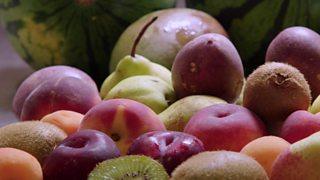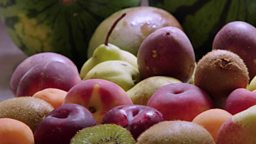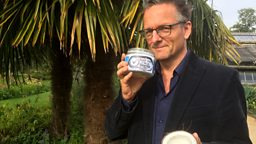Can too much fruit be bad for you?
From ‘an apple a day…’ to the mantra of 5-a-day, we often hear that eating fruit is good for us. However, recent claims challenge this long-held idea, because fruit has a high sugar content and it’s well known that too much sugar is bad for us.

So – how much fruit is too much?
Fruit is nutritionally rich, giving us both sugar for energy, and crucial vitamins and minerals.
When it comes to the vitamins and minerals in fruit, our bodies cannot store very much of these nutrients from one day to the next. So if we eat more than we need, there is no nutritional benefit or significant harm, as any excess is passed out in our urine.
But what your body will hold onto is the sugar in fruit. If you take in more sugar than you need, you risk becoming overweight which can lead to serious health problems.
Fruit contains more sugar than you might think. Typically, a regular-sized full-sugar soft-drink contains about 7-8 teaspoons of sugar. A large apple may contain 3-4 teaspoons of sugar. So two apples can contain as much sugar as a can of soft drink.
Contrary to popular belief, the sugar from fruit is no healthier than that found in sugary junk foods. It contains two forms:
• glucose – your body’s preferred source of energy, which goes straight into your bloodstream
• fructose, which is taken to your liver – and if not needed for energy is turned into fat.
These are chemically identical to the sugars found in junk food, and, taken in excess, can cause the same health problems.
So how can you get all the health benefits of fruit without overdosing on sugar?
- The choice of fruit can make a difference. Gram for gram, bananas, cherries, pomegranates, mangoes, grapes and figs all contain more sugar than watermelon, raspberries, kiwi fruit and fresh cranberries.
- The riper the fruit, the more sugar it contains, so try not to leave it lying around for too long.
- You should eat most of your fruit whole, and no more than one glass of juice or smoothie a day, as the process of digesting the whole fruit releases the sugar more slowly and avoids overloading your body with a single large dose.
- Eat more vegetables. Vegetables contain the same range of vitamins and minerals as fruit, but only a fraction of the sugar.





























